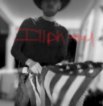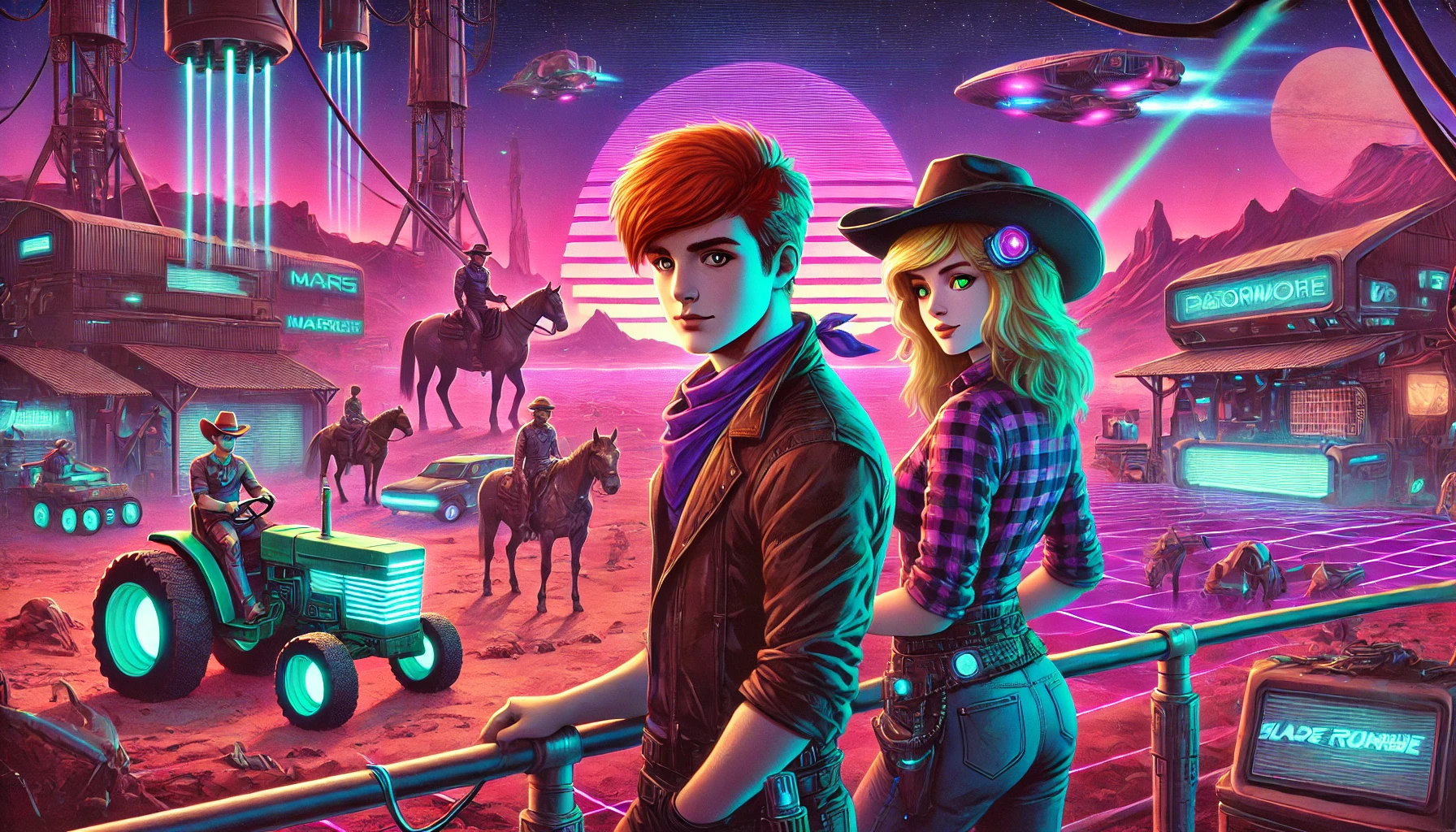illphated
The Green-Eyed Stranger
The posters went up overnight. Tacked to the post office wall, the side of the general store, and the dusty notice board outside the sheriff’s office, they were a jarring splash of color in our drab, sun-bleached town.
The woman on them was a 1940s fever dream, a cowgirl with hair the color of wheat fields and eyes so green they seemed to hum with their own light. She wore a black hat that shadowed a knowing, confident smile. But it wasn’t her beauty that held you; it was the objects in her hands and the words emblazoned beneath her.
In one hand, she held a strange, mint-green device—sleek and humming, unlike anything we’d ever seen. It looked like some newfangled toothbrush from the World’s Fair. The other hand was clenched in a fist, a gesture of power. And the text, in a bold, demanding font, declared: “All your Lithium belongs to me.”
No one knew what it meant. Lithium? Old Man Hemlock, who ran the pharmacy, said it was some kind of salt they gave to folks with manic spells. Why would this beautiful cowgirl want it? And why did she look like she was ready to go to war for it?
They called her Lola, though no one knew where that name came from. It just seemed to fit. She wasn’t just on the posters. She was here. She’d taken a room at the boarding house and spent her days walking the town’s perimeter, that strange toothbrush-like object held out like a dowsing rod. It would click and whir softly as she passed the old salt flats, the place the cattle always avoided.
I saw her up close once. I was fixing a fence post when she walked by. Those green eyes weren’t just bright; they were lit from within, like a cat’s. And her smile wasn’t friendly. It was the smile of a prospector who had just struck the motherlode.
“Nice day,” I mumbled, just to be neighborly.
She stopped and turned those electric eyes on me. The humming from her device grew a little louder. “It’s a resource-rich environment,” she said, her voice smooth and even, without a hint of a regional accent. “You people have been poor for generations, sitting on a fortune you didn’t even know you had.”
That night, the humming started. It wasn’t just from her device anymore. It was a low thrum that came from the salt flats, a deep vibration that you felt in your teeth. The sky above the flats glowed with a faint, sickly green light, the same color as Lola’s eyes.
The next morning, she was gone. Her room at the boarding house was empty, the bed untouched. The posters were still there, but they seemed different now, mocking. A warning we hadn’t understood.
Sheriff Brody went out to the salt flats. He came back pale and shaken. The flats were gone. In their place was a massive, perfectly circular crater, its edges smooth and glassy, as if cauterized by an immense heat. There was nothing left. No salt, no sand, no scrub brush.
We never saw Lola again. But sometimes, on a clear night, you can see a new star in the sky. It’s not really a star. It’s a tiny, green pinprick of light that pulses faintly. And you can’t help but think of her, the beautiful stranger with the impossible eyes and the strange device. You think about the fortune we were sitting on, and you realize the truth of that poster. It wasn’t a slogan. It was a statement of ownership. All our lithium, all our future, belonged to her.
EmailURL







gvgxct
dmaf64
rc312u